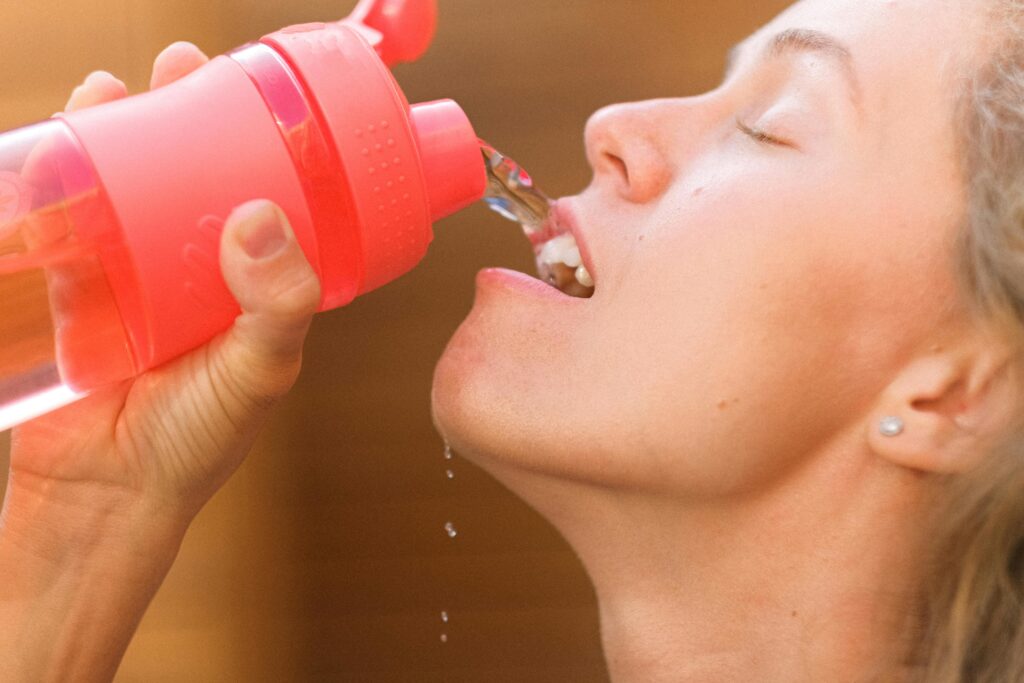
Overview
Water is essential for life, but can too much of a good thing be harmful? Staying hydrated is crucial for maintaining health and ensuring the body functions optimally. However, excessive water consumption can lead to serious health complications, including a condition called water intoxication. This article explores the importance of water, how much you should drink, and the risks associated with overhydration
Why Is Water Essential?
Water is the cornerstone of life and a fundamental component of the human body, making up 50–70% of our body weight. It supports nearly every function in the body, ensuring we stay healthy and active. Here’s a closer look at why water is so important
Key Functions of Water
- Eliminates Waste: Water aids in removing waste through urination, perspiration, and bowel movements.
- Regulates Temperature: It helps maintain a stable body temperature, especially during exercise or in hot weather.
- Protects and Lubricates: Water cushions joints and protects sensitive tissues, such as those in the eyes and spinal cord
Related : Best Spices to Boost Your Metabolism, According to a Dietitian
Consequences of Dehydration

Without adequate water intake, the body becomes dehydrated, leading to symptoms such as:
- Fatigue
- Headaches
- Impaired cognitive and physical functions
While water is vital for health, consuming too much can be harmful. Let’s explore the balance needed to stay properly hydrated
How Much Water Should You Drink Daily?
The amount of water an individual needs varies based on factors such as activity level, climate, and overall health. However, general guidelines provide a useful starting point
Related : Is Olive Oil or Avocado Oil Better for Cooking?
- Men: Approximately 15.5 cups (3.7 liters) of fluids per day
- Women: Approximately 11.5 cups (2.7 liters) of fluids per day
This daily intake includes fluids from all sources, including beverages and food. Approximately 20% of our daily fluid needs come from water-rich foods such as fruits and vegetables
The 8-Glass Rule
The common advice to drink eight 8-ounce glasses of water a day is easy to remember but not scientifically universal. Instead, a better approach is to
Monitor urine color. Light yellow urine indicates proper hydration, while dark yellow suggests dehydration.
What Is Overhydration?
Overhydration occurs when you drink more water than your body can process. This disrupts the delicate balance of electrolytes, particularly sodium, in your blood, leading to a condition called hyponatremia
Related : Why Starving Yourself Isn’t a Good Idea for Weight Loss
Kidney Limitations
The kidneys can process only 0.8–1.0 liters of water per hour. Consuming water faster than this rate can overwhelm the kidneys and increase the risk of overhydration.
Symptoms of Overhydration
When sodium levels in the blood drop too low, water moves into the body’s cells, causing them to swell. Swelling in brain cells is especially dangerous and can result in severe complications.
- Mild Symptoms
- Headache
- Nausea
- Fatigue
- Muscle weakness or cramping
- Severe Symptoms
- Confusion
- Drowsiness
- Difficulty breathing
- Seizures
- Coma or even death in extreme cases
Who Is at Risk of Overhydration?
While overhydration is rare, certain groups and situations can increase the likelihood of consuming too much water.
- Endurance Athletes
Athletes participating in marathons or long-distance events may consume excessive water without replenishing lost electrolytes, leading to hyponatremia.
- Military Training
Intense training exercises, especially in hot climates, can result in overhydration among military personnel
Related : Surprising Signs You May Be Vitamin D Deficient
- Health Conditions
Medical conditions that affect fluid balance can heighten the risk of overhydration, including:
- Congestive heart failure
- Liver disease (cirrhosis)
- Adrenal gland disorders
- Syndrome of inappropriate antidiuretic hormone (SIADH)
- Mental Health Disorders
Compulsive water drinking, known as psychogenic polydipsia, is sometimes seen in individuals with conditions like schizophrenia.
- Certain Medications
Medications such as diuretics, antipsychotics, and recreational drugs like MDMA (ecstasy) can increase thirst and the risk of overhydration
Consequences of Water Intoxication
Drinking excessive amounts of water can lead to water intoxication, where the brain swells due to low sodium levels. This condition can cause severe and life-threatening complications, including:
- Hypertension (High Blood Pressure): Excess fluid increases pressure within the blood vessels.
- Seizures: Triggered by swelling in the brain.
- Coma or Death: In extreme cases, untreated water intoxication can be fatal
Related : Health Benefits of Beets
How to Stay Hydrated Safely
Hydration is about maintaining a balance. Here are some tips to ensure you stay hydrated without overdoing it:
- Drink When Thirsty
Thirst is your body’s natural signal to rehydrate. Pay attention to it and drink water accordingly.
- Monitor Urine Color
Light yellow: Proper hydration
Dark yellow: Dehydration
- Adjust for Activity and Environment
Increase water intake during exercise or in hot, humid conditions.
Pregnant and breastfeeding women require additional fluids.
- Include Hydrating Foods
Fruits and vegetables such as watermelon, cucumbers, and spinach are excellent sources of hydration.
- Avoid Overdrinking
Be cautious of excessive water intake during endurance events or while taking medications that increase thirst
Related : Health Benefits of Ginger
The Takeaway
Water is indispensable for health, but balance is key. While staying hydrated is crucial, overhydration can disrupt your body’s electrolyte balance, leading to severe complications like hyponatremia. The best approach is to:
- Listen to your body’s thirst signals.
- Consider your activity level, environment, and overall health.
- Incorporate water-rich foods into your diet.
By drinking water mindfully, you can stay energized and focused without compromising your health. Remember, hydration is about maintaining equilibrium — not just drinking more. Stay informed, stay balanced, and prioritize your well-being
Frequently Asked Questions
- What happens if you drink too much water in a short period?
Drinking excessive water in a short time can overwhelm your kidneys, leading to a condition called hyponatremia. This occurs when sodium levels in your blood drop too low, causing cells to swell, which can result in nausea, confusion, seizures, or even death in severe cases.
- How do I know if I’m drinking too much water?
Signs of overhydration include clear urine, frequent urination, swelling in the hands or feet, headaches, and nausea. Monitoring your urine color and listening to your body’s thirst signals can help prevent overhydration.
- Who is at risk of water intoxication?
Endurance athletes, military personnel, and individuals with certain health conditions (e.g., kidney or liver disease) are at higher risk. People taking medications that increase thirst or those with mental health disorders leading to compulsive drinking are also vulnerable.
- Can drinking too much water harm your brain?
Yes, overhydration can cause brain cells to swell due to low sodium levels, leading to symptoms such as confusion, drowsiness, and in severe cases, seizures or coma. This condition is known as water intoxication and can be life-threatening.
- What’s the safest way to stay hydrated?
Drink water when you feel thirsty and monitor your urine color. Light yellow urine indicates proper hydration. Adjust your intake based on activity level, environment, and health conditions, and include water-rich foods like fruits and vegetables in your diet. Avoid drinking excessive water during short periods or endurance activities without replenishing electrolytes











